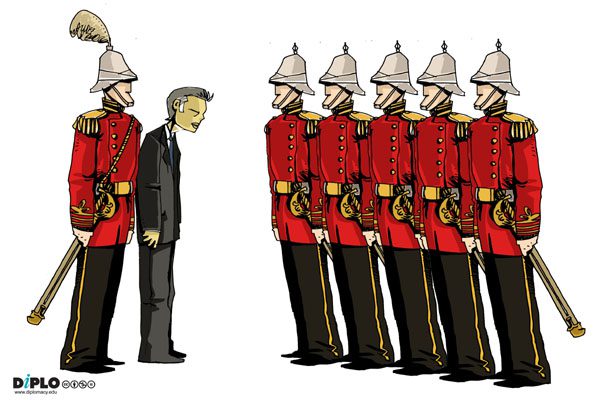Diplomatic protocol and etiquette
What is protocol diplomacy?
Protocol diplomacy refers to the set of formalities, procedures, and conventions that govern interactions between states, international organisations, and other key actors on the international stage. It involves the management of state ceremonies, visits by foreign dignitaries, and formal negotiations to ensure respect, hierarchy, and order in international relations. Protocol is a vital aspect of diplomatic practice, encompassing etiquette, precedence, and ceremonial functions to create an environment conducive to diplomatic engagement.
Why is protocol diplomacy relevant?
Protocol diplomacy plays an essential role in facilitating smooth and respectful international interactions. It helps to prevent misunderstandings and ensures that parties involved in diplomatic activities adhere to mutually acceptable norms. Philosophically, protocol diplomacy is grounded in the principles of respect for sovereignty, dignity, and equality among states. Its impact extends beyond formality; the structured nature of protocol can help maintain peace, defuse tensions, and promote collaboration by providing a common framework that nations can rely on to establish trust and avoid inadvertent conflict.
How is protocol diplomacy performed?
Protocol diplomacy is performed through a range of methods and techniques, such as formal negotiations, organising state visits, hosting international conferences, and conducting ceremonial events. These activities ensure that all diplomatic engagements run smoothly and in accordance with international norms. The approach to protocol often includes meticulous preparation, attention to detail, and respect for cultural differences, ensuring that every element, from seating arrangements to greetings, follows a well-defined order that conveys respect and maintains dignity. Techniques such as negotiations, lobbying, and economic promotion are all underscored by the rules of protocol, which help to create an atmosphere of mutual respect and legitimacy.
Where is protocol diplomacy performed?
Protocol diplomacy is performed across a variety of diplomatic spaces, including bilateral, regional, and multilateral arenas. Bilateral contexts may involve official state visits or negotiations between two countries, whereas regional organisations like the European Union or the African Union provide platforms for regional protocol activities. On the multilateral level, organisations like the United Nations and the World Trade Organization often engage in ceremonial activities governed by strict protocol to ensure that interactions between a diverse group of nations proceed in an orderly and respectful manner. Protocol diplomacy also extends to international conferences, summits, and other gatherings of global significance.
When has protocol diplomacy been evaluated?
Protocol diplomacy has evolved over centuries, with its origins traceable to early forms of statecraft and the establishment of the first diplomatic missions. Key moments include the signing of the Peace of Westphalia in 1648, which laid down the foundations of modern diplomatic protocol, and the 1815 Congress of Vienna, which formalised many of the rules still in use today. The 20th century witnessed significant developments, particularly with the establishment of international organisations like the United Nations, which provided a framework for standardising diplomatic protocols. In recent times, protocol diplomacy has gained renewed relevance as globalisation and technological advances have increased the complexity of international engagements.
WHO are the actors of protocol diplomacy?
The main actors in protocol diplomacy include governments and their diplomatic representatives, such as ambassadors and consuls. Heads of state, foreign ministers, and protocol officers are key governmental figures responsible for upholding protocol standards during international engagements. Non-state actors, including international organisations, businesses, and even non-governmental organisations, also participate in protocol diplomacy when they interact with state actors. Protocol experts and consultants play an advisory role, ensuring that ceremonies and interactions meet established diplomatic standards.
Conclusion
Protocol diplomacy is a foundational element of international relations, ensuring that diplomatic activities proceed with order, respect, and dignity. Its relevance lies not only in its role in upholding tradition but also in its ability to adapt to the evolving landscape of international diplomacy. Through a structured approach involving various actors and contexts, protocol diplomacy helps to establish the norms that underpin successful diplomatic interactions, making it an indispensable aspect of international engagement.
References
Academic references
- Berridge, G. R. (2010). Diplomacy: Theory and Practice. This text provides an in-depth analysis of the practice of diplomacy, including the role of protocol.
- Nicolson, H. (1963). Diplomacy. A foundational work that discusses the historical and philosophical underpinnings of diplomatic protocol.
Online references
- Wikipedia. “Protocol (diplomacy).” This article offers an overview of the concept of protocol in diplomacy, including definitions, historical context, and practical examples.




